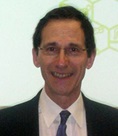26 Jan 2012
The role of the analytical scientist in the forthcoming Olympics was explained to the London Regional Group in a lecture on 24 Jan 2012. Held at UCL, Prof David Cowan, from the Drug Control Centre at King's College London, gave a detailed account of the latest analytical techniques, the problems and issues of drug testing in sport, and the plans for the London 2012 Olympic events.
Established in 1978, the King's College Drug Control Centre is the first WADA/IOC accredited laboratory to gain ISO Guide 25 (predecessor of ISO 17025) accreditation for its sports work. It carried out more than 8,000 tests across 70 sports last year, and was invited to be part of the London Olympic bid to the International Olympic Committee in 2004. For the Olympics this year they have joined with GlaxoSmithKline (GSK), in setting up a dedicated centre at one of its UK research and development sites in Harlow, Essex. Thousands of samples will be analysed throughout the Games.
In his lecture Prof Cowan outlined the complexity of modern drug testing. A whole range of banned substances are listed by the World Anti-Doping Agency (WADA). The urine samples from tested athletes first undergo solvent extraction. The most important analytical technique is a combination of chromatography and high-resolution mass spectrometry. The preparation of the sample for testing is critical, and based on the many test procedures that have been developed for banned substances. The King's College Drug Control Centre has played a key role with the development of new tests for prohibited substances, eg the first tests for amphetamines and anabolic steroids, and the first controls for hCG and dihydrotestosterone.
The standards they need to achieve are very high. From the thousands of samples tested, very few will be positive for one of hundreds of possible banned substances. Such precision is not simply a matter of buying the latest or most expensive equipment, but having highly qualified and trained scientists to operate the equipment and prepare the samples with utmost care. For the Olympics almost 200 scientists and support staff will deal with thousands of samples, and the laboratory will be in operation 24 hours a day.

Prof Cowan concluded with a warning to drug cheats 'We have the capacity to be able to help protect the health of the athlete, and the integrity of the Games'.
Fred Parrett, Chair, London Group
